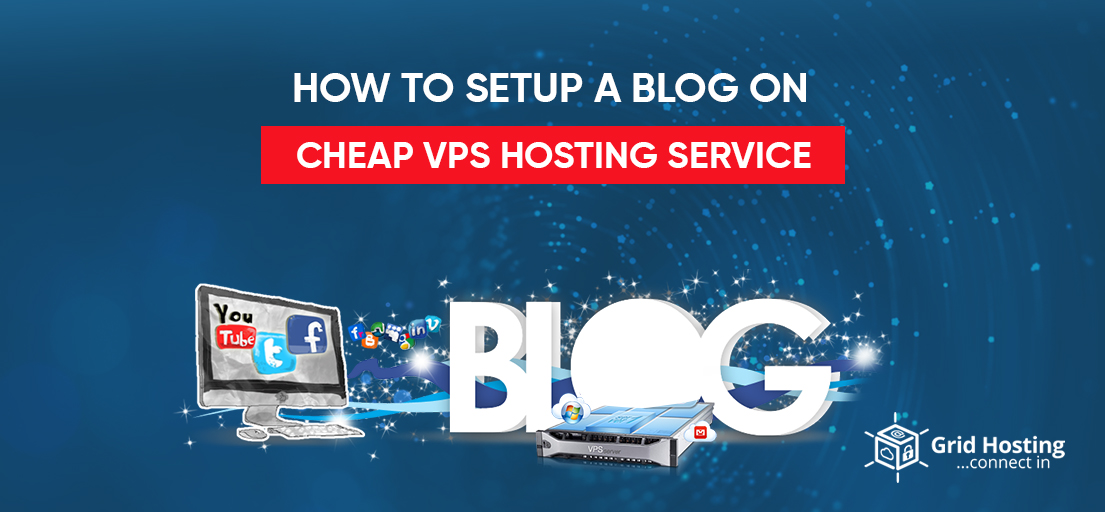In the ever-expanding digital landscape, establishing an online presence through blogging has become not just a pastime but a powerful means of sharing ideas, insights, and stories with the world. However, the concern of budget often looms large for aspiring bloggers. It is possible to start a blog without spending too much money if you follow the right approach. This article will guide you through the steps of creating a blog using reasonably priced Virtual Private Server (VPS) hosting services.
Understanding VPS Hosting
VPS hosting is a type of web hosting that makes use of virtualization technology to create a dedicated virtual server within a physical server. It provides the best of both worlds by bridging the gap between shared and dedicated hosting. Your website gets its virtual area with VPS hosting, giving you better performance, security, and control.
Importance of a Blog for Online Presence
A blog holds significant importance in establishing and bolstering an online presence. Serving as a dynamic platform for content creation and dissemination, a blog allows individuals and businesses to showcase expertise, share insights, and engage with their audience. Regularly updated, high-quality content not only attracts visitors but also enhances search engine visibility, contributing to improved search rankings.
Blogs’ interactive nature encourages audience involvement through comments, feedback, and social media activities, resulting in the formation of a community around the business or individual. a well-maintained blog is a powerful tool for brand building, aiding in the communication of a business’s personality, values, and mission.
It establishes authority within a niche by offering valuable information, addressing industry trends, and positioning the blogger as a thought leader. Beyond marketing, blogs create networking opportunities, enabling connections with professionals, influencers, and like-minded individuals. a blog is a multifaceted asset that not only boosts SEO and brand image but also facilitates educational outreach, feedback collection, and long-term value as a repository of evergreen content.
Advantages of Using a VPS Hosting for Blog
Let’s explore the benefits of using Virtual Private Server (VPS) hosting for a blog in more detail.
-
Isolation and Security
VPS provides a virtualized environment with dedicated resources, ensuring isolation from other users. This enhances security by preventing potential vulnerabilities from neighboring websites on shared hosting.
-
Control and Customization
Users have administrative access to the server, allowing them to configure settings, install custom software, and optimize the server environment for their specific blogging needs. This level of control is not typically available in shared hosting.
-
Resource Allocation
Dedicated resources such as CPU, RAM, and storage are allocated to each VPS. This prevents resource contention, ensuring consistent performance for the blog even during traffic spikes.
-
Scalability
VPS hosting is scalable, enabling users to easily adjust resources as their blog grows. This scalability ensures that the blog can handle increasing traffic and resource demands without disruptions.
-
Cost-Efficiency
While providing identical features to dedicated hosting, VPS hosting is less expensive. It strikes a cost-performance balance, making it an inexpensive option for individuals and small enterprises.
-
Choice of Operating System
Users can choose their preferred operating system (e.g., various Linux distributions), giving them the flexibility to work with the platform they are most comfortable with or that best supports their blogging software.
-
Improved Performance
With dedicated resources, VPS hosting generally provides better performance compared to shared hosting. This translates to faster page loading times, improved responsiveness, and an overall better user experience for blog visitors.
-
Root Access
Users often have root access or administrative privileges, allowing them to make deep-level configurations. This is particularly beneficial for advanced users who want to fine-tune the server environment to meet specific requirements.
-
Reliability and Uptime
VPS hosting providers often offer higher uptime guarantees compared to shared hosting. This reliability ensures that the blog remains accessible to visitors, contributing to a positive user experience.
-
Backup and Recovery Options
VPS hosting typically comes with backup and recovery options. Users can schedule regular backups, ensuring that critical data is protected, and they have the means to recover in case of data loss.
-
Technical Support
Many VPS hosting services provide technical support, assisting users with server-related issues. This support can be crucial, especially for users who are not experienced with server management.
Choosing the Right VPS Hosting Provider
Selecting a reliable and cost-effective VPS hosting provider is crucial. Consider reputable options such as DigitalOcean, Vultr, or Linode. Assess their pricing plans, customer reviews, and the features they offer to find the best fit for your blogging needs.
-
Determining Your Blog’s Requirements
Before diving in, outline your blog’s requirements. Consider factors like anticipated traffic, storage needs, and the technologies your blog platform relies on. This assessment will help you choose an appropriate VPS hosting plan.
-
Setting Up Your VPS
It’s time to set up your VPS after you’ve decided on a provider and a plan. To create an account, select an operating system, and install your virtual server, following the provider’s instructions. To ensure a smooth operation, become acquainted with basic server management duties.
-
Installing a Web Server and Database
Install a web server (often Apache or Nginx) and a database server (such as MySQL or PostgreSQL) on your VPS to host your blog. Configure these components to work in tandem, creating a solid basis for the operation of your blog.
-
Choosing a Blogging Platform
Selecting a user-friendly and scalable blogging platform is essential. Popular options like WordPress, Ghost, or Jekyll are great choices, each catering to different preferences and technical skill levels. Install your chosen platform on your VPS, following their respective installation guides.
-
Securing Your Blog
Implement essential security measures to protect your blog and VPS. This includes setting up a firewall, regularly updating software, and enabling encryption (HTTPS). Strengthening security from the outset will safeguard your blog against potential threats.
-
Optimizing Performance
Enhance your blog’s performance by optimizing server settings, utilizing caching mechanisms, and compressing images. These optimizations not only improve user experience but also contribute to faster page loading times.
-
Backing Up Your Content
Regularly back up your blog content to prevent data loss. Utilize backup tools provided by your hosting provider or implement a custom backup strategy using reliable third-party solutions. This ensures that your hard work remains secure and recoverable.
-
Monitoring and Scaling
Keep an eye on your blog’s performance through monitoring tools. Scale your VPS resources as needed, upgrading your plan or adjusting configurations to accommodate growing traffic. Proactive monitoring allows you to address issues promptly and ensure a seamless user experience.
Read More: What to look for, while selecting any web hosting company?
Conclusion
In conclusion, establishing a blog on a cost-effective VPS hosting service requires a systematic approach. Choosing a reliable provider, configuring DNS, installing essential components like a web server and database, implementing security measures, optimizing performance, and maintaining regular backups are critical steps. Continuous monitoring and updates contribute to a secure and efficient blogging experience. By following these steps, you can create and maintain a blog on a budget-friendly VPS hosting service while ensuring a reliable and secure online presence.
If you want to start a blog on Cheap VPS hosting Services with better performance and security, you should immediately utilize a VPS hosting plan. Many local businesses provide low-cost VPS services, such as Grid hosting. Contact the Grid hosting provider for additional details.
For Special discounts and offers, visit our official Facebook Page







